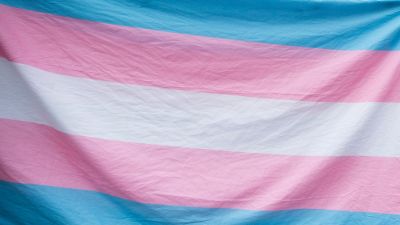Gender Recognition Act: Government 'misses key opportunity to progress LGBT equality'

The controversial Gender Recognition Act does not need changing, the government has concluded, prompting criticism from LGBT charities and organisations.
Following a long-delayed response to a public consultation on the legislation, ministers have concluded it strikes the right balance in providing "proper checks and balances" while supporting people who want to change their legal sex.
But LGBT charity Stonewall has criticised the government's response, saying it has "fallen far short on its promise to reform" and "missed a key opportunity to progress LGBT equality".
What is the Gender Recognition Act?The 2004 Act applies in England and Wales and has been described as "groundbreaking" in giving transgender people a way to have their gender recognised in law.
The process is, however, in "dire need of reform" according to Stonewall.
The group has called for "a simple process which isn’t medicalised, intrusive or demeaning".
As a result of pressure from LGBT rights groups, charities, and organisations a public consultation was launched into the Act in 2018.
More than 100,000 people responded.
A separate petition calling on the government to reform the Act "to allow transgender people to self-identify without the need for a medical diagnosis, to streamline the administrative process, and to allow non-binary identities to be legally recognised" has gained more than 97,000 signatures.
Transgender people 'significantly more likely' to be crime victims, report finds
Hate crimes are rising - but how hate is spreading is changing
What has been decided?
After a much-awaited response to the consultation, Women and Equalities Minister Liz Truss announced on Tuesday that the government had concluded "the balance struck" in the Act is "correct".
She added: "There are proper checks and balances in the system and also support for people who want to change their legal sex."
Ms Truss said that instead of changing the legislation, the process and experience of applying for a gender recognition certificate would be made "kinder and more straightforward".
Adding: "We want transgender people to be free to live and to prosper in a modern Britain."
Is anything being changed?
The government has outlined some changes to the process, but is not reforming the Act.
- At least three new gender clinics are going to be opened this year for adults, in response to criticism of current waiting times.
- The process of applying to change legal sex will be moved online.
- The current fee of £140 will be reduced to a "nominal amount".
Ms Truss said gender recognition reform is "not the top priority for transgender people" and that their "most important concern is the state of trans healthcare".
How have the changes been received?
But Ms Truss' assessment has faced criticism from LGBT charity Stonewall.
In a statement the group wrote: "All trans people deserve to be respected for who they are."Reforming the Act could have brought England and Wales in line with our neighbours in the Republic of Ireland, who have had a de-medicalised, self-determination system for gender recognition since 2015 without any problematic repercussions."
Stonewall has criticised the outcome of the consultation, saying it makes "only minimal administrative change" that "don’t go anywhere near far enough toward meaningfully reforming the Act".
On the three-year wait for a response to the consultation, the group said: "The UK’s stalled progress on trans equality is now one of the main reasons we continue to fall behind other European countries on LGBT equality"
LGBT charity Mermaids, who support "gender-diverse children and young people", issued a statement saying the group was "relieved" by the announcement "after years of unhelpful speculation, debate and concern" about the Act.
But the group expressed disappointment more changes had not been made to support younger people.
CEO Susie Green added: "We know from our young service users that they hoped for more and we must repeat our disappointment that none of these proposals offer help to those aged under 18."